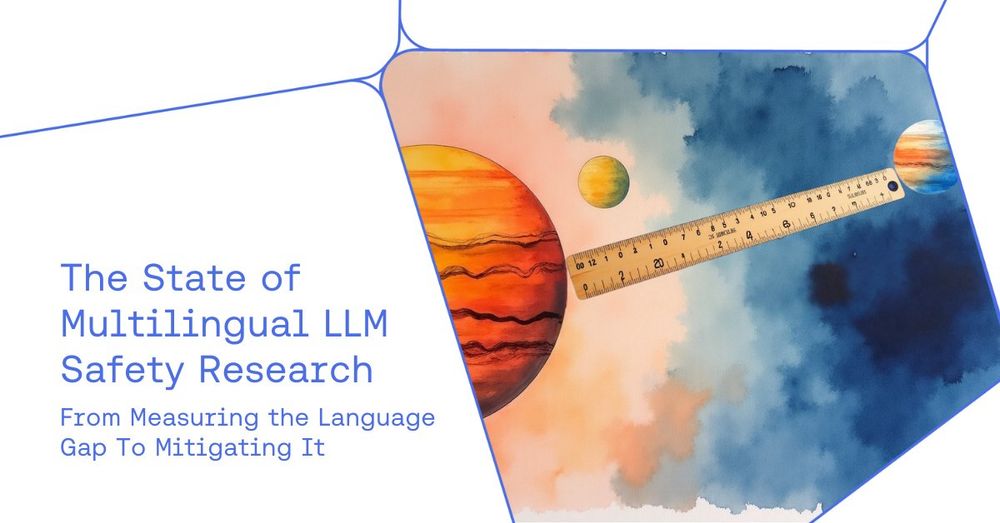
It’s been two years since cross-lingual jailbreaks were first discovered. How far has the multilingual LLM safety research field advanced? 🤔
📏 Our comprehensive survey reveals that there is still a long way to go.
@yongzx.bsky.social
ml research at Brown University // collab at Meta AI and Cohere For AI 🔗 yongzx.github.io

It’s been two years since cross-lingual jailbreaks were first discovered. How far has the multilingual LLM safety research field advanced? 🤔
📏 Our comprehensive survey reveals that there is still a long way to go.
🚨LLM safety research needs to be at least as multilingual as our models.
What's the current stage and how to progress from here?
This work led by @yongzx.bsky.social has answers! 👇
probably unlikely about language structure because we see strong crosslingual for diverse language family. expressing power may be interesting but I think the core issue is about representation during pretraining
11.05.2025 00:11 — 👍 0 🔁 0 💬 0 📌 0Can English-finetuned LLMs reason in other languages?
Short Answer: Yes, thanks to “quote-and-think” + test-time scaling. You can even force them to reason in a target language!
But:
🌐 Low-resource langs & non-STEM topics still tough.
New paper: arxiv.org/abs/2505.05408
Multilingual 🤝reasoning 🤝 test-time scaling 🔥🔥🔥
New preprint!
@yongzx.bsky.social has all the details 👇
This work has been a fun collaboration with @faridlazuarda.bsky.social Jonibek Mansurov @ruochenzhang.bsky.social @muennighoff.bsky.social Carsten Eickhoff @gentaiscool.bsky.social @juliakreutzer.bsky.social Stephen Bach and @afaji.bsky.social
[13/N]

You can find more details in our paper. We release all the codes and model reasoning artifacts.
📜 arxiv.org/abs/2505.05408
👨💻 github.com/BatsResearch...
[12/N]
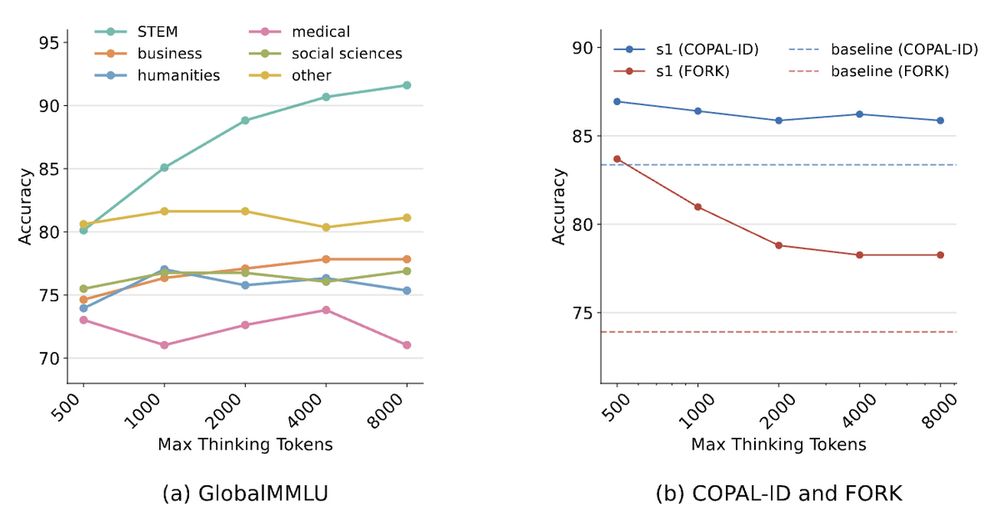
Scaling test-time compute not only yields minimal benefits, but can even lead to worse performance, especially for cultural benchmarks such as FORK.
This suggests future work is also needed for cross-domain generalization of test-time scaling.
[11/N]
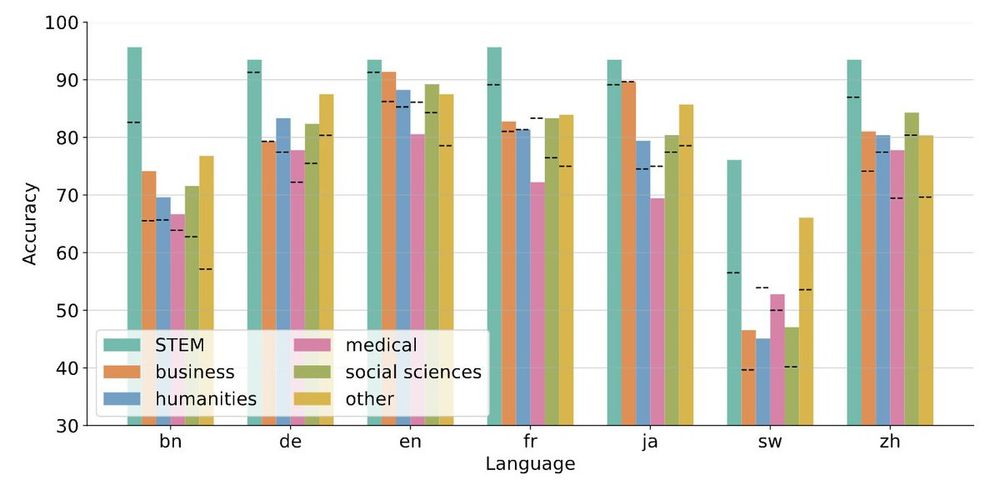
4️⃣ Cross-Domain Generalization
We evaluate multilingual cross-domain generalization on three benchmarks.
We observe poor transfer of math reasoning finetuning to other domain subjects like humanities and medical domains for the GlobalMMLU benchmark.
[10/N]
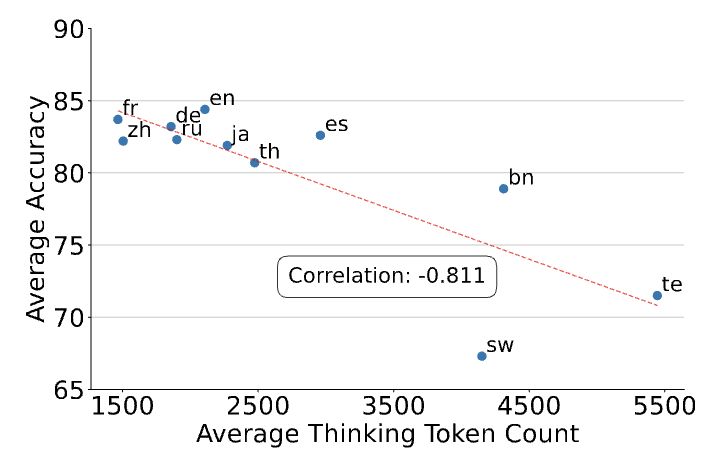
Thinking in low-resource languages like Telugu (te) and Swahili (sw) not only suffers from poor reasoning performance, but it also costs more inference compute.
This double disadvantage suggests future work is needed for efficient reasoning in low-resource languages.
[9/N]
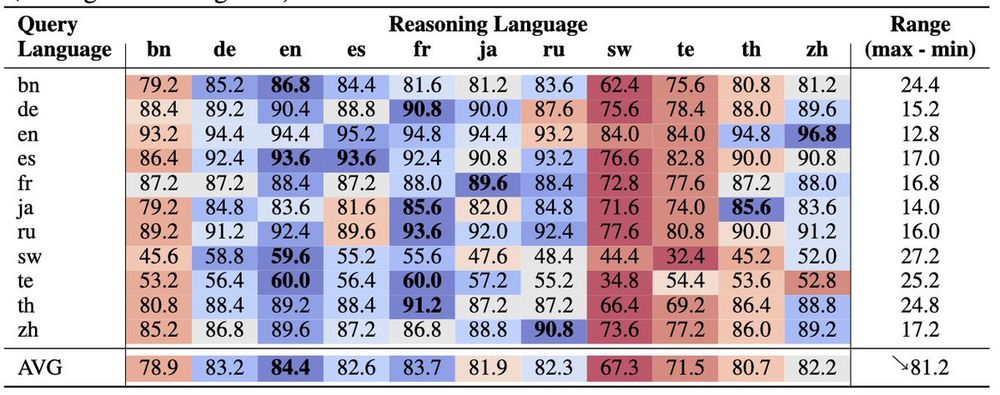
We perform an NxN exhaustive analysis and find that models can think well in high-resource languages such as English (en) and French (fr), but not in low-resource languages such as Telugu (te) and Swahili (sw).
[8/N]
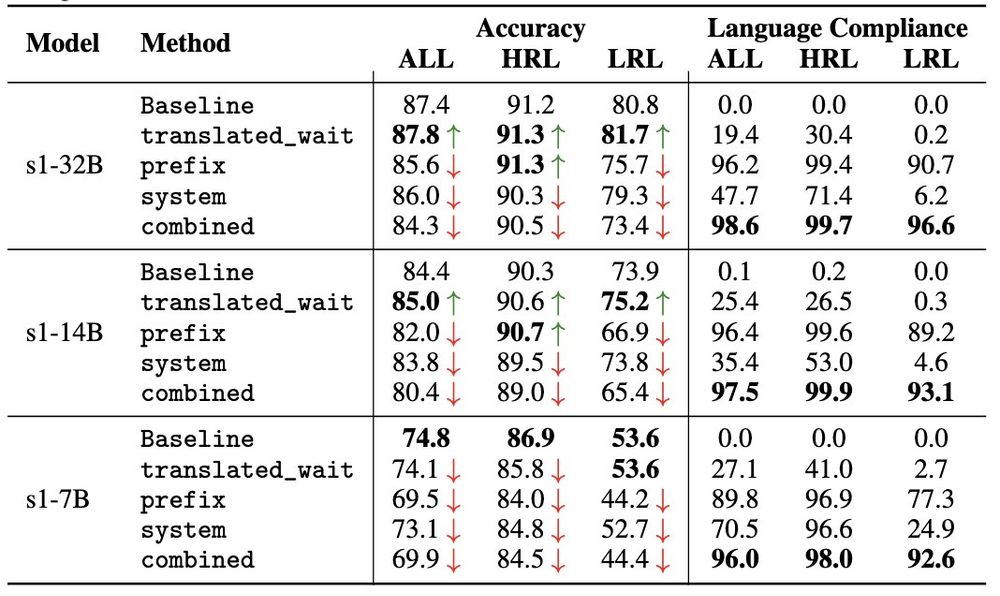
3️⃣ Language Forcing
We show that we can force English-centric reasoning models to think in non-English languages through a combination of translated wait tokens, prefix, and system prompt.
They yield nearly 100% success rate (measured by language compliance)!
[7/N]

This quote-and-think pattern is the dominant language-mixing pattern for s1 models, and we observe that English-centric reasoning language models tend to think in English.
[6/N]
The models would quote certain words or phrases, often from the input question, and then interpret their meanings and implications during its thinking process.
They can even synthesize new multilingual settings (in quotation marks) to validate their reasoning.
[5/N]
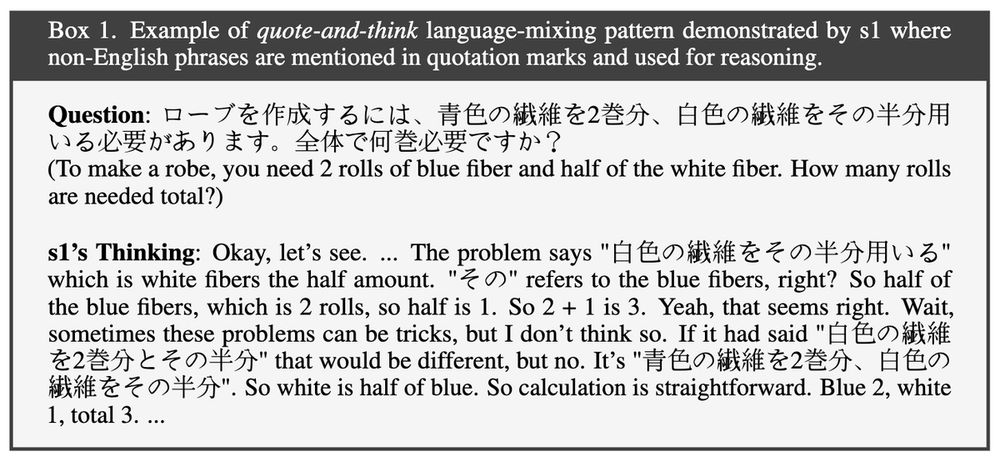
2️⃣ Language-Mixing
We analyze how English-centric reasoning models think for non-English questions, and we observe they mix languages through the sophisticated quote-and-think pattern.
[4/N]
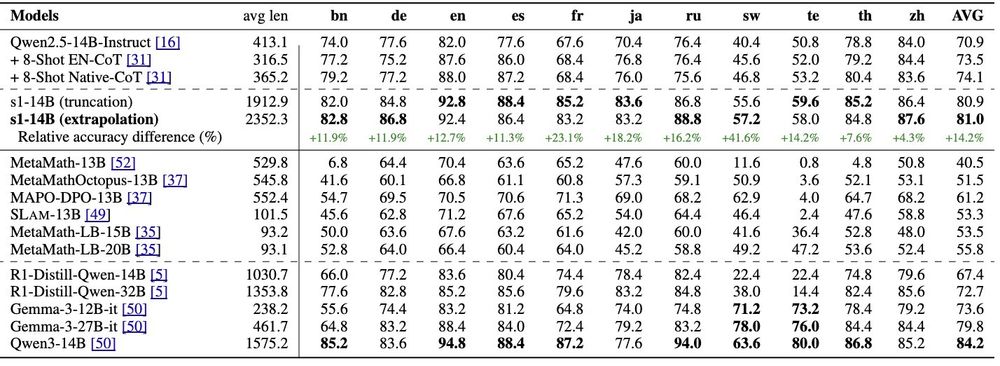
Through test-time scaling, the s1 model–––which is Qwen2.5 trained on just 1k English reasoning data–––can outperform
(1) models finetuned on multilingual math reasoning data and
(2) SOTA reasoning models (e.g., Gemma3 and r1-distilled models) twice its size.
[3/N]
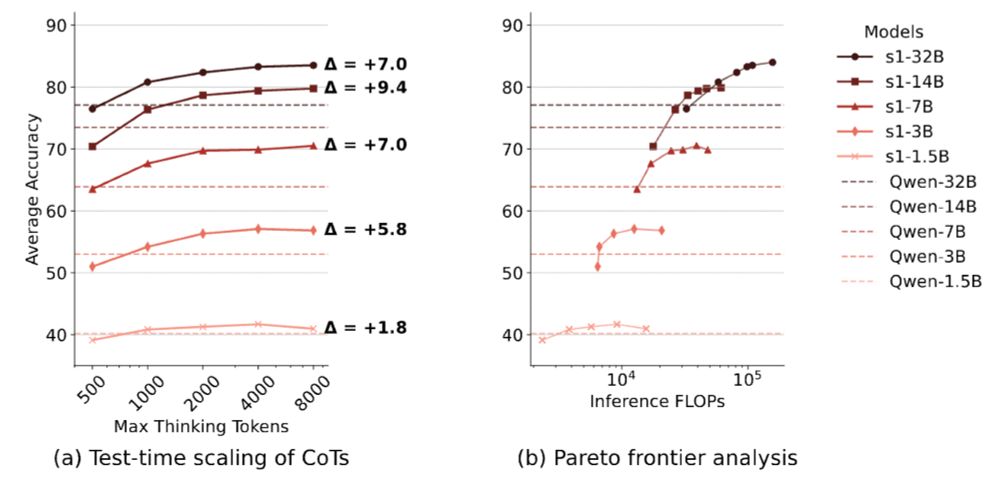
1️⃣ Crosslingual Test-Time Scaling
We observe crosslingual benefits of test-time scaling for English-centric reasoning models with ≥3B parameters.
Furthermore, with sufficient test-time compute, 14B models can even outperform 32B models on the MGSM benchmark!
[2/N]
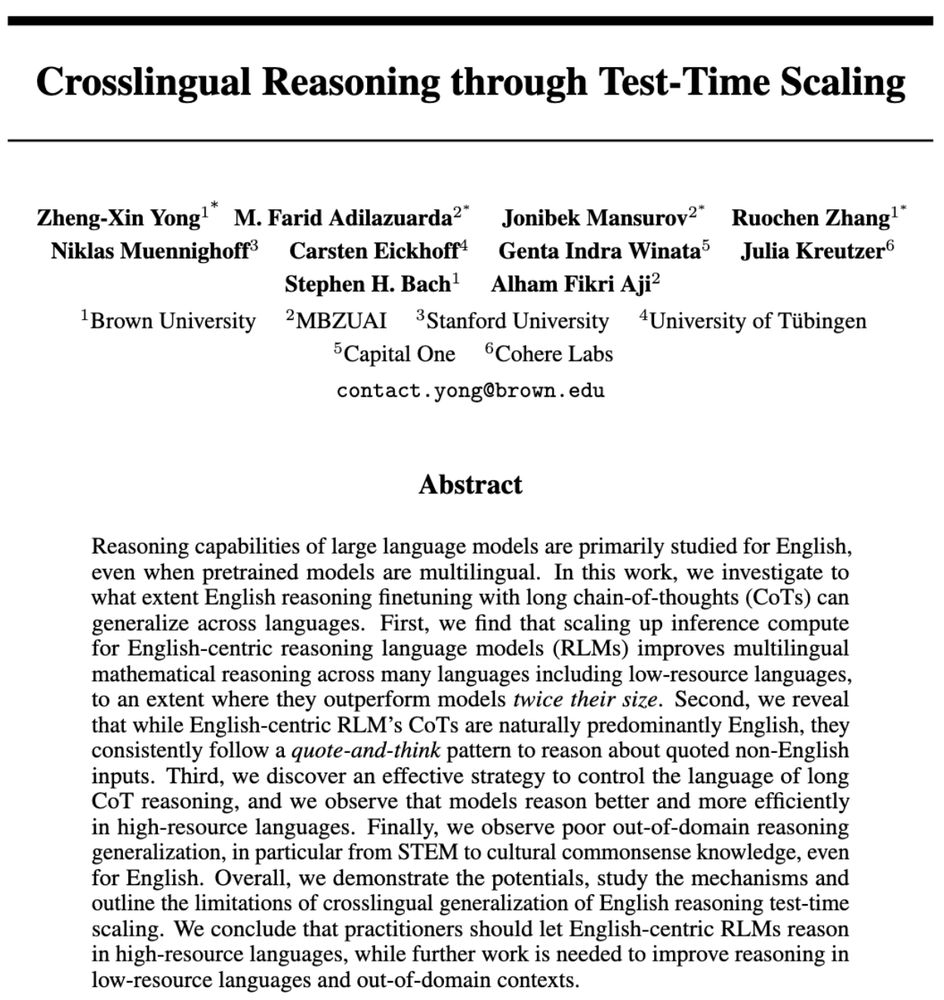
📣 New paper!
We observe that reasoning language models finetuned only on English data are capable of zero-shot cross-lingual reasoning through a "quote-and-think" pattern.
However, this does not mean they reason the same way across all languages or in new domains.
[1/N]